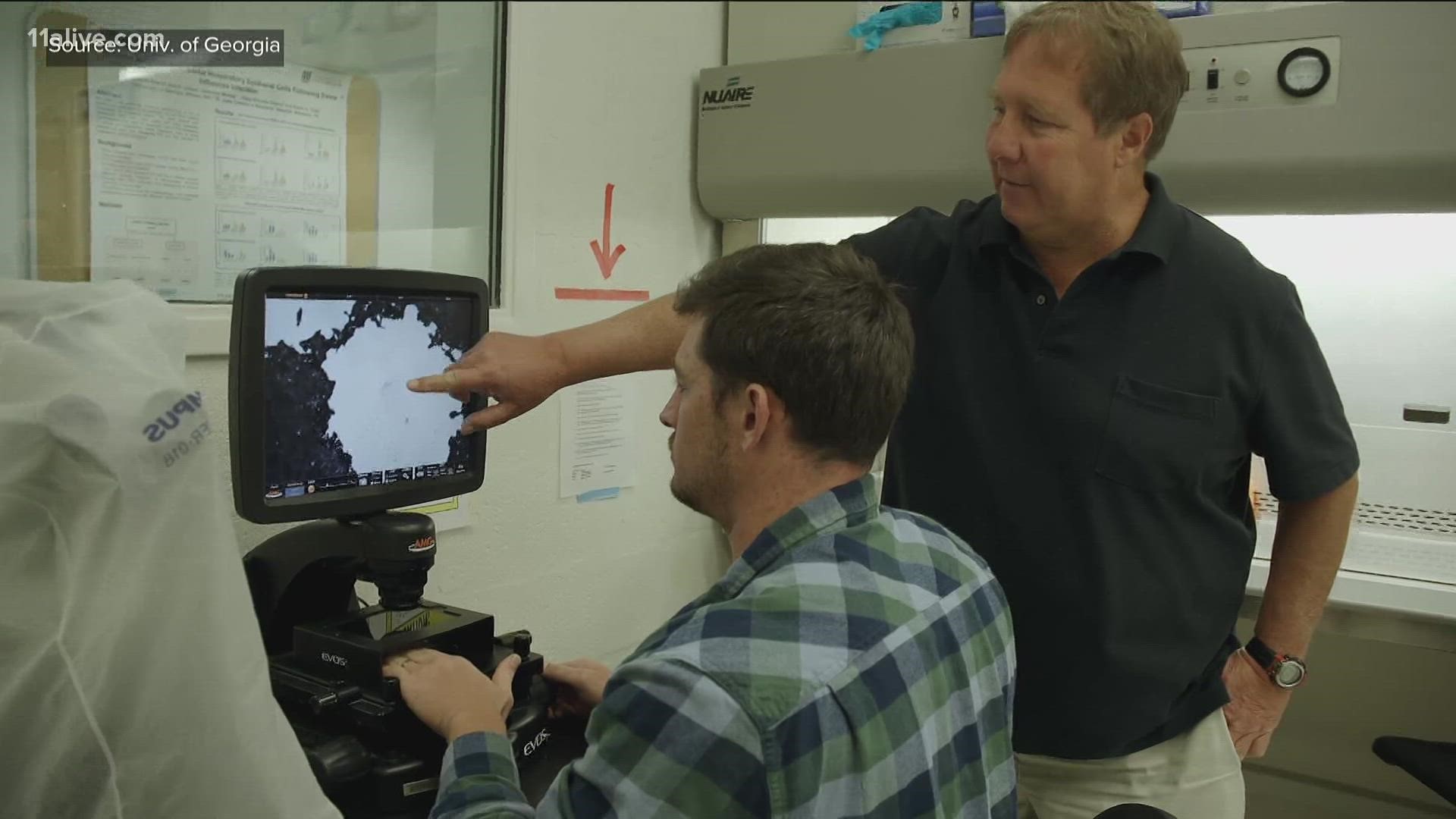ATLANTA — Health experts have been looking for a cost-effective, widely available, easy to administer medication with limited side effects that can successfully target COVID-19 infections.
Dr. Ralph Tripp, professor in the University of Georgia's Department of Infectious Diseases, believes his team may have found that exact drug.
Tripp believes the discovery could be a game-changer. While vaccines have proven successful at slowing the virus, Tripp said COVID-19 will likely remain an issue into the future. Having an effective treatment will be necessary.
The drug in question is called probenecid. It is FDA approved and primarily used to treat gout. According to Tripp, it has been on the market for more than 40 years.
COVID-19 takes over a person's cells to replicate, producing more of the virus and increasing their infection.
"Probenecid blocks that activity," Tripp said. "Very effective drug in that way."
His team's study at UGA shows the drug could be effective in two ways against COVID-19.
The first is as a prophylactic treatment, meaning if someone has a known exposure, the drug could be used to help them avoid getting sick.
Researchers also found success in their study by treating hamsters and in an uncontrolled study of 10 human patients in Florida with mild symptoms.
"The treatment cleared them up by almost five to 10 days earlier," Tripp said. "We know it actually works in humans, now we need to prove it."
Proving it means large-scale controlled clinical trials. Tripp tells 11Alive work is currently underway to secure funding so trials can begin within the year.
The study conducted at UGA was published Friday in the peer-reviewed Scientific Reports, part of the Nature journal.
Tripp called it a potential breakthrough that could have a lasting impact with probenecid treating other similar viral infections.
"I really think it is a blockbuster drug. Bottom line we know it works for all RNA viruses. RSV, influenza and SARS."
Currently, other drugs have been repurposed to be used against COVID-19, but Tripp said other options have drawbacks limiting their availability for widescale use.
A drawback Tripp said of Remdesivir for example, originally intended to fight the Ebola virus, is that it is taken by IV.
"You can't treat people with IVs easily. So the drug has been shelved really, bottom line."
Meanwhile, probenecid is taken orally with lasting impact.
"A single oral dose is effective and we just want to confirm the dosage for different age groups," Tripp said.

